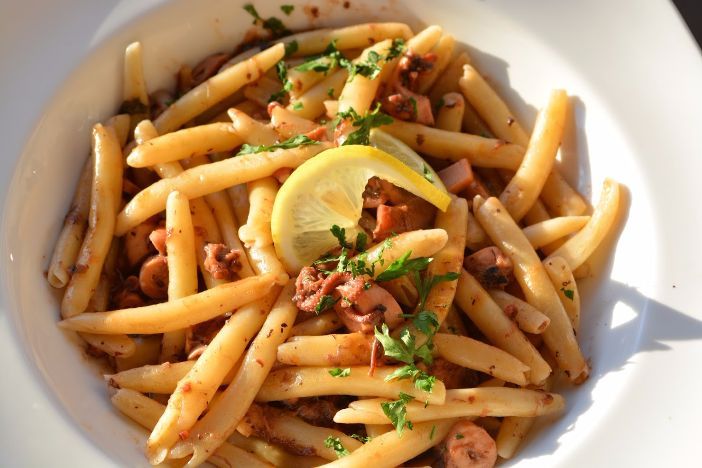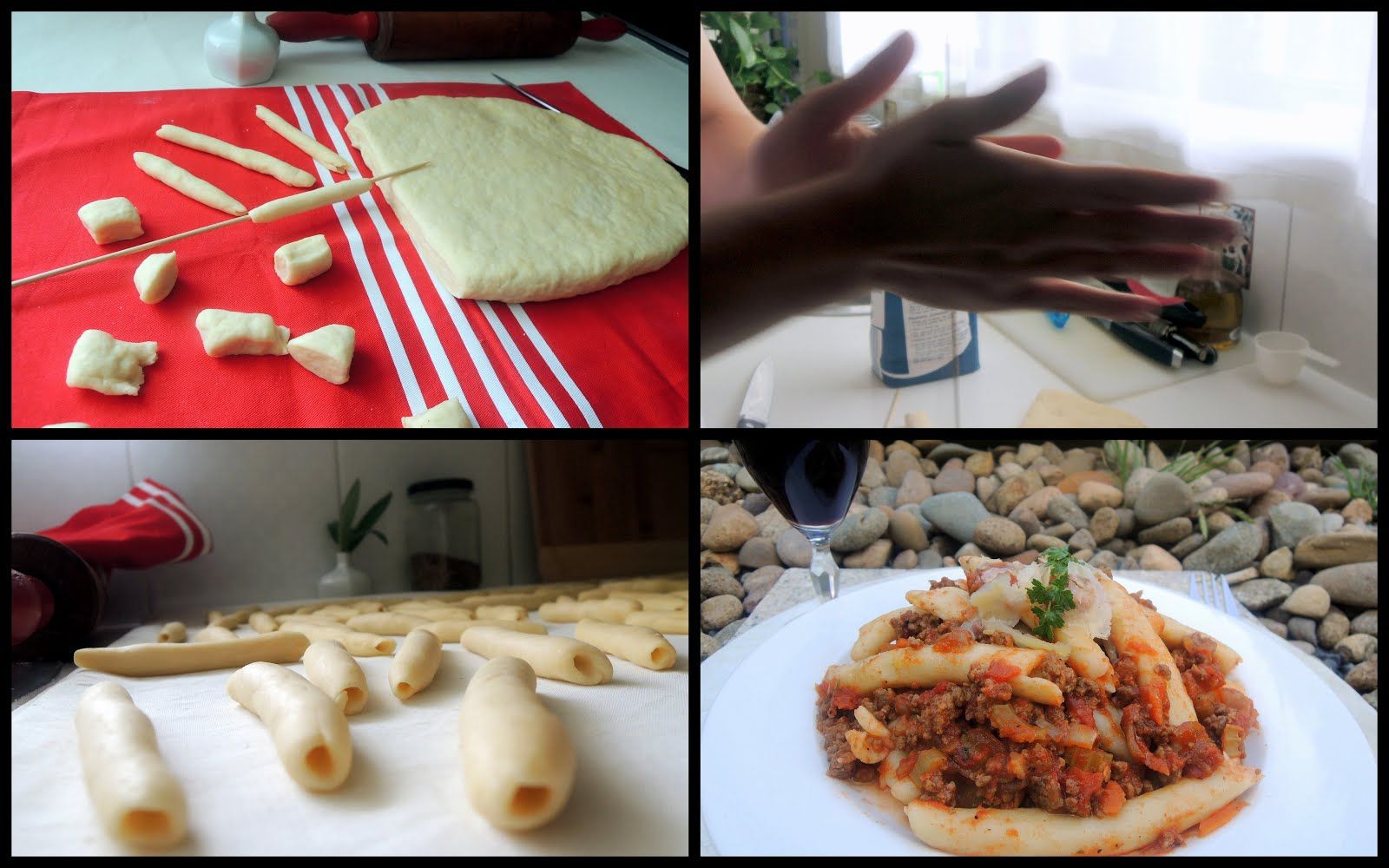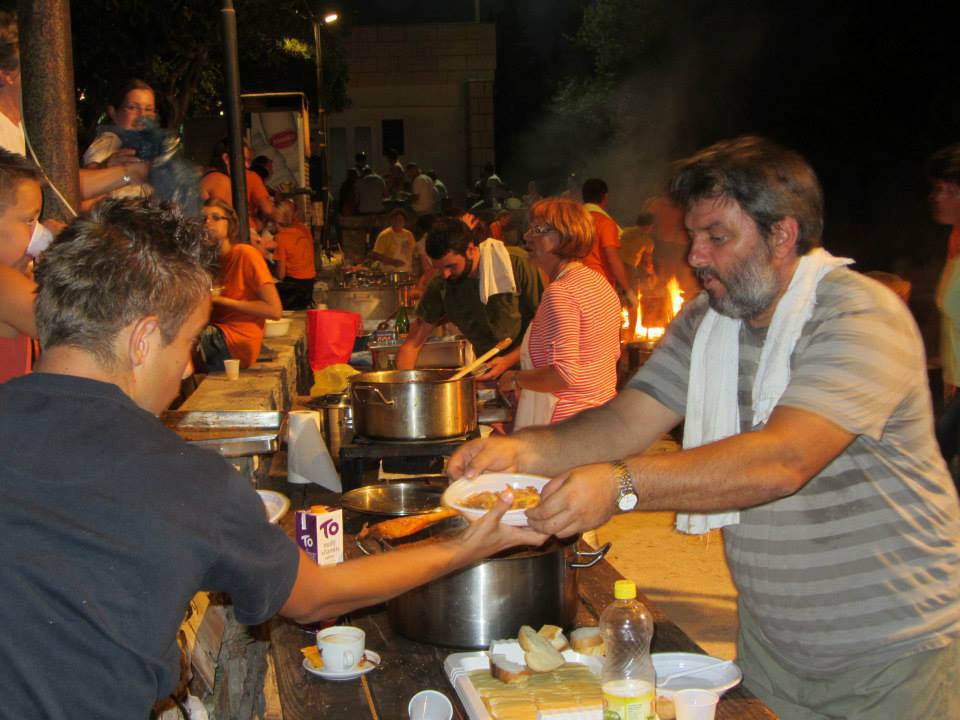Flavours of the Adriatic is our way of sharing with you just how wonderful, unique and traditional, the cuisine of Croatia truly is; this week, we bring you – Žrnovski Makaruni.
My first experience of Žrnovski Makaruni was aboard a yacht. The story began with the chef calling his ‘person’ in Korčula town to get a ‘special delivery’ – quite literally a lovely elder woman turned up to our yacht and handed over a bag, which I later learned was filled with her handmade Žrnovski makaruni.
Every time we pulled into Korčula, the same scenario and over the weeks the chef prepared it in many different ways; sometimes with a tomato-based brudet, in a classic ragu-style or with pršut and truffles, it didn’t matter, it was a gorgeous taste-sensation every time.
They say we eat with our eyes first, which I will not refute; however, after years working in hospitality and now living in Croatia, I will say that flavours are enhanced and a dish means so much more when we learn the story behind it.

Credit: Glas Grada
I worked in a restaurant in Melbourne, Australia, where the concept of the Restaurant was that everything came from small, local suppliers in Tasmania. I knew the names of the farms, when we received the catch, how old the beef was, even the name of the fisherman! Everyone enjoyed the food but always appreciated that there was more to the meal than the plate in front of them.
So, when I learned that this macaroni comes from a traditional recipe which dates back more than 400-years, needless to say, I had a whole new love and appreciation for the dish.
To those in the know, Korčula will bring to mind a few thoughts, Marco Polo being one of them. Korčula town is said to be the birthplace of the famous 13th Century explorer; one stroll around the streets will reaffirm this notion thanks to restaurants, cafes and souvenir shops boasting his name (let’s leave the real argument to the scholars).
The history of pasta and more specifically macaroni is also wrapped up with the name Marco Polo, some stories claim that Marco Polo introduced it to Italy after returning from his great adventures in China. In his book ‘The Travels of Marco Polo’, Marco makes reference to the many wonders he witnessed, pasta being one of them.
However, there have been many mentions of pasta (flour, salt, water) and macaroni throughout history – the ancient Etruscan civilisation, Chinese, Greeks, Romans, Arabs, Spanish…
Whatever the case, the fact that Korčula’s macaroni dates back more than 400-years, it is quite possible that its history or inspiration was taken from Marco Polo or perhaps the Venetian Empire which ruled Korčula from the 15th – 18th Century.
Unlike traditional macaroni which is made from hard wheat (durum), Žrnovski Makaruni is made from a typical dough base: flour, salt, egg, olive oil, and water. What makes it so special? Besides the centuries-old tradition, it takes a lot of love and patience to make this macaroni. First, the dough is made, rolled out, cut into tiny pieces, and then each piece is hand-rolled onto a stick to make the individual makarun. To make a kilo of macaroni, you are looking at a few hours of work.

Credit: Around the world in favourite recipes
Watch the macaroni making process below...
Why is it called Žrnovski Makaruni? Because it originated in a town called Žrnovo which lies just outside of Korčula town. The macaroni is so loved and celebrated that it even has its own festival during the summer in the town of Žrnovo.

Credit: Zrnovski Makaruni Facebook Page
The festival begins with a workshop, where all interested, can learn how to make the traditional macaroni with passionate locals. It is a wonderful atmosphere with dozens of pots hanging over fires, cooking the macaroni and beef stew – which it is traditionally served with, live music, traditional costume and dance, cold beer… Just take a look at the wonderful ambiance below.
I don’t know about you, but I love food in general, so let’s do a quick recap, Žrnovski Makaruni: 400-year-old recipe + handmade with love + has its own festival = a definite must-try when visiting Croatia. For those not lucky enough to be on the island Korčula during the festival, don’t fret, it is served in many restaurants in Korčula and around Croatia (though better to try it on the island of its origin).
Now that we are moving through the series, are you starting to realise just how incredibly diverse Croatian cuisine is?


